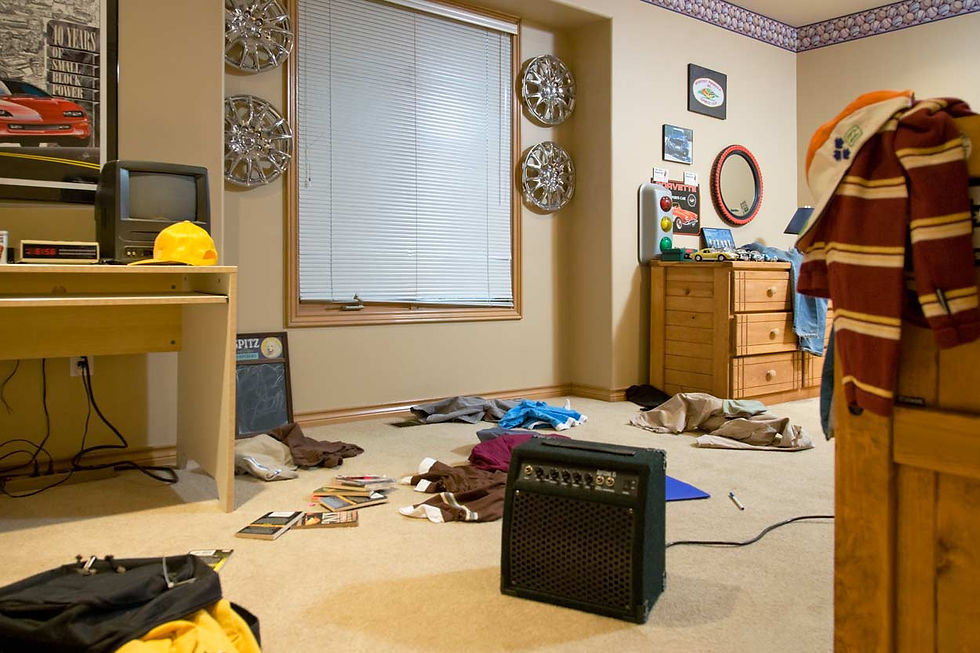The Bittersweet Goodbye: The Emotional Attachment to Our First Cars
- Gregory Devine

- Oct 29, 2024
- 3 min read

Think back to your first car…how does it make you feel? Maybe you can remember the smell of it or a little flaw that made it unique. Sure, it’s a sentient object, but cars have personalities that we discover as their owners. It’s like a relationship you develop over time. You learn how the car likes to be driven; you find things you love and hate about it. Ultimately, you grow attached to it. That’s what makes it so hard to see it go when you finally decide to upgrade.
I’ve had my car since I was 17. It’s a 14-plate Seat Ibiza in white, with a perfect set of colour contrasting grey alloys to match. When I collected it from the showroom in Chesterfield, I didn’t even have my full driver’s license. We insured it under my own name (learner’s insurance) and bought a set of ‘L’ plates so I could be the one to drive it home. My nan sat next to me with my Mum following us behind. The smile never left my face until I got it home.
I passed my test about three weeks later. My instructor dropped me back home afterwards; it was a little sad to say goodbye, as I’d spent many hours a week with him over the previous few months, and I was now unlikely to ever see him again. He gave me some final pointers and wished me luck for driving on the open roads by myself. I rushed inside, quickly insured the car and that was it—I was straight out on my own. I think I must’ve visited every single family member that day, celebrating my newfound independence.

Over the years, I began to learn about my car’s personality. Like how it pulled in second gear, how I could get it slightly off the ground on local country roads and how it hated to be driven quickly through city centres and would guzzle fuel in the process. All these gave me such an attachment to the car I’ve owned for nearly five years.
Back when I was refereeing, that car took me everywhere, including the finals I was in charge of. I’ve parked it in the match officials’ car park of some of the huge stadiums I’ve been lucky to run the line at.
Then there’s the emotional memories. I’ve laughed in that car, blown my fuse in that car and cried in it too. I’ve sat there bricking myself waiting to hear results of exams, tests and scans. I’ve celebrated, thinking Rotherham had avoided relegation on the final day, only to find out Derby had scored and we were now going down. That little car has been a part of my life almost every day for the last five years. There’s no wonder there’s such an attachment there. Being the first in my school year to pass my test, most people in my village see the car and know it’s me that’s out and about.
Selling it was such a weird feeling. Reminiscing about all the memories in the car made me quite emotional, I’m not afraid to admit it. Yet it was also somewhat exciting, knowing that I was about to pick up a beautiful new car that I’m sure will help me create similar memories. It was a sad feeling that occurred to me moving out of my first-year university halls. An emotional time!
I can only assume the feeling is the same when you’re a fully-fledged adult. At 21, I don’t see myself as that. Moving house comes with poignant emotions and I’d imagine changing your car also carries such feelings (unless you’re someone who swaps their motor every year, perhaps). Maybe it’s slightly different when it’s not your first car, and it likely differs from individual to individual. I’ve got friends my age who’ve already had five cars, because they can’t help writing them off. I guess they probably haven’t felt the same emotions as I’m feeling, simply because they haven’t spent as much time with their cars.
Not knowing who is having the car next is also disappointing. I’d like to think it will be well looked after but being a ten-year-old machine with high mileage, I can’t imagine it will be. There’s not a dent or scratch to be found on it, and the seats still look like new. Whomever purchases it is getting a fantastic little car. Do I hope I get this same attachment to my new motor? I think I will, simply due to how much time I spend in my car. They’re fantastic memories, though, and I hope reading this has brought back some memories for you, too.







